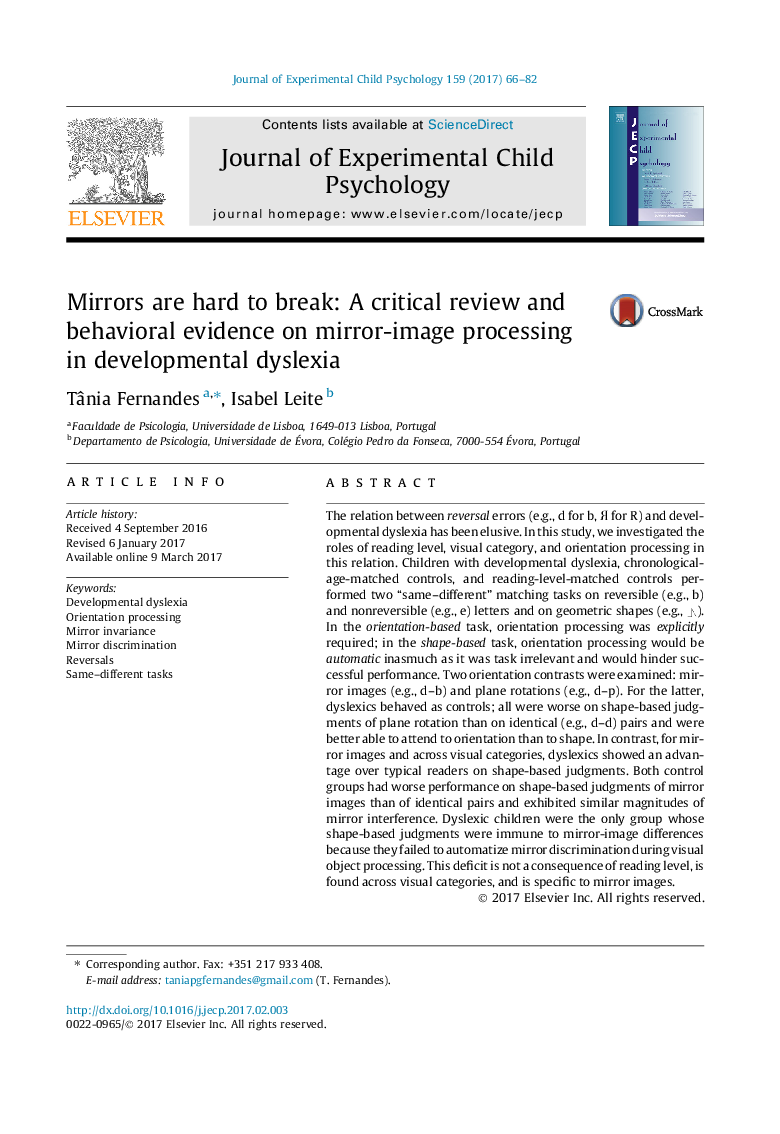| Article ID | Journal | Published Year | Pages | File Type |
|---|---|---|---|---|
| 5039980 | Journal of Experimental Child Psychology | 2017 | 17 Pages |
â¢The relation of reversals (e.g., d for b) with developmental dyslexia was examined.â¢Children performed orientation-based and shape-based tasks on letters and shapes.â¢For rotated pairs (e.g., d - p), dyslexics behave as controls in both tasks.â¢Controls but not dyslexics had worse shape-based judgments of mirror (e.g., d - b) than identical pairs.â¢Dyslexics fail to automatize mirror discrimination during visual object processing.
The relation between reversal errors (e.g., d for b, Я for R) and developmental dyslexia has been elusive. In this study, we investigated the roles of reading level, visual category, and orientation processing in this relation. Children with developmental dyslexia, chronological-age-matched controls, and reading-level-matched controls performed two “same-different” matching tasks on reversible (e.g., b) and nonreversible (e.g., e) letters and on geometric shapes (e.g., ). In the orientation-based task, orientation processing was explicitly required; in the shape-based task, orientation processing would be automatic inasmuch as it was task irrelevant and would hinder successful performance. Two orientation contrasts were examined: mirror images (e.g., d-b) and plane rotations (e.g., d-p). For the latter, dyslexics behaved as controls; all were worse on shape-based judgments of plane rotation than on identical (e.g., d-d) pairs and were better able to attend to orientation than to shape. In contrast, for mirror images and across visual categories, dyslexics showed an advantage over typical readers on shape-based judgments. Both control groups had worse performance on shape-based judgments of mirror images than of identical pairs and exhibited similar magnitudes of mirror interference. Dyslexic children were the only group whose shape-based judgments were immune to mirror-image differences because they failed to automatize mirror discrimination during visual object processing. This deficit is not a consequence of reading level, is found across visual categories, and is specific to mirror images.
